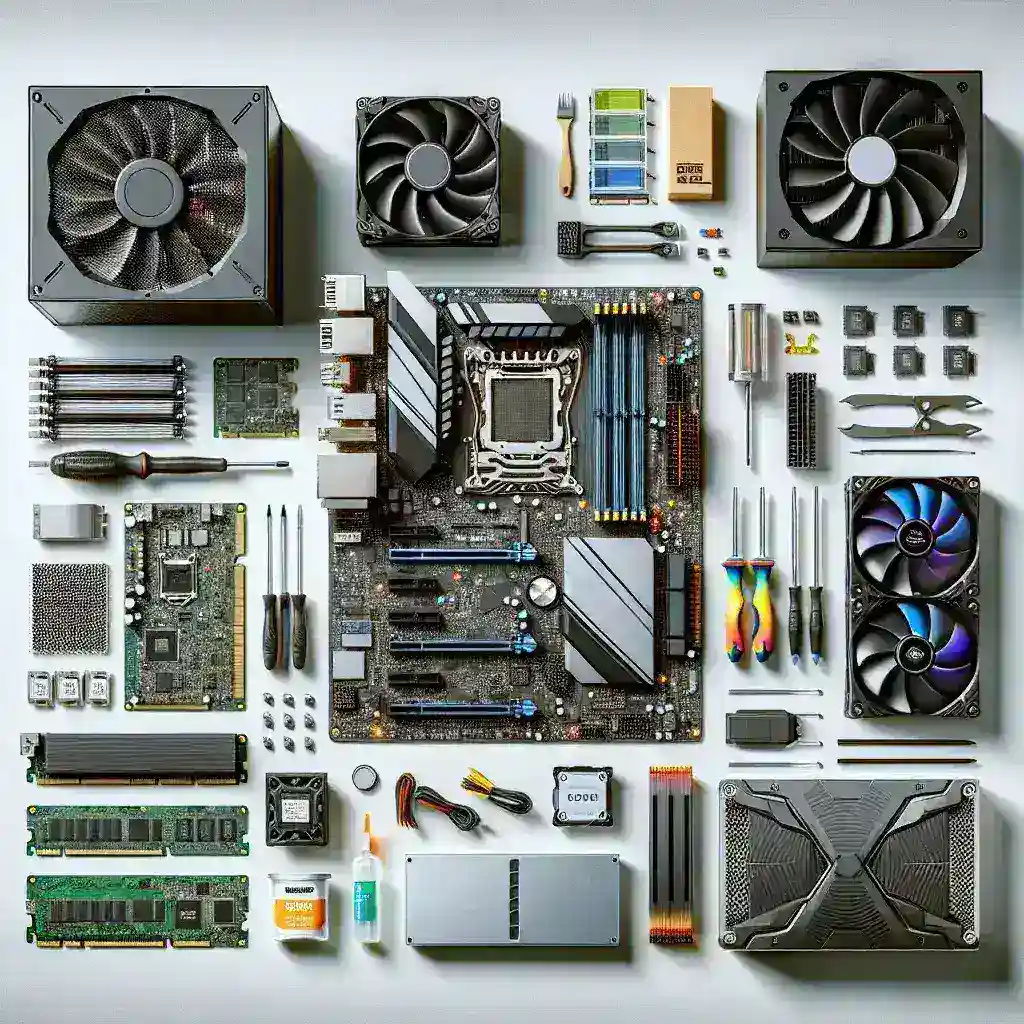Ultimate Guide to Building a Budget Gaming PC
Introduction to Budget Gaming PCs
Building a budget gaming PC might sound daunting, but it doesn\’t have to be. With the right selection of components, you can assemble a powerful system that meets all your gaming needs without draining your wallet.
Key Components to Consider
1. Processor (CPU)
The CPU is the brain of your gaming PC. Opt for a mid-range processor from AMD or Intel. The AMD Ryzen 5 or Intel Core i5 series are highly recommended for budget builds due to their excellent performance to price ratio.
2. Graphics Card (GPU)
The GPU is crucial for gaming performance. Budget gamers should look at options like the NVIDIA GTX 1650 or AMD Radeon RX 570. These cards offer great 1080p performance without a hefty price tag.
3. Memory (RAM)
For gaming, 8GB of RAM is the minimum, but 16GB is ideal for smoother performance and future-proofing your build. Brands like Corsair and G.Skill provide reliable and affordable options.
4. Storage
A combination of SSD and HDD storage can help balance speed and storage needs. A 240GB SSD for the operating system and essential games, combined with a 1TB HDD for other files, is a cost-effective approach.
5. Motherboard
Choose a motherboard that is compatible with your CPU and offers all the necessary ports and expansion slots. Budget-friendly options from MSI and ASUS provide good quality and performance.
6. Power Supply Unit (PSU)
A reliable PSU ensures your system runs smoothly. Aim for a 500W PSU with an 80 Plus rating for efficiency and stability. Brands like EVGA and Corsair are trustworthy choices.
7. Case
An affordable case like the NZXT H510 or Cooler Master MasterBox Q300L provides ample space and proper airflow, essential for cooling your components effectively.
Assembling Your Budget Gaming PC
Follow detailed guides or video tutorials for the assembly process. It\’s important to be careful and methodical to ensure each component is correctly installed and connected.
Maximizing Performance
Once assembled, optimize your system by keeping drivers updated and adjusting in-game settings for the best performance-to-visuals balance. Overclocking can also help, but it should be done cautiously.
Conclusion
Building a budget gaming PC is a rewarding experience. By choosing the right components and following best practices, you can enjoy a high-performing gaming setup without overspending. Start your build today and dive into the world of gaming!

